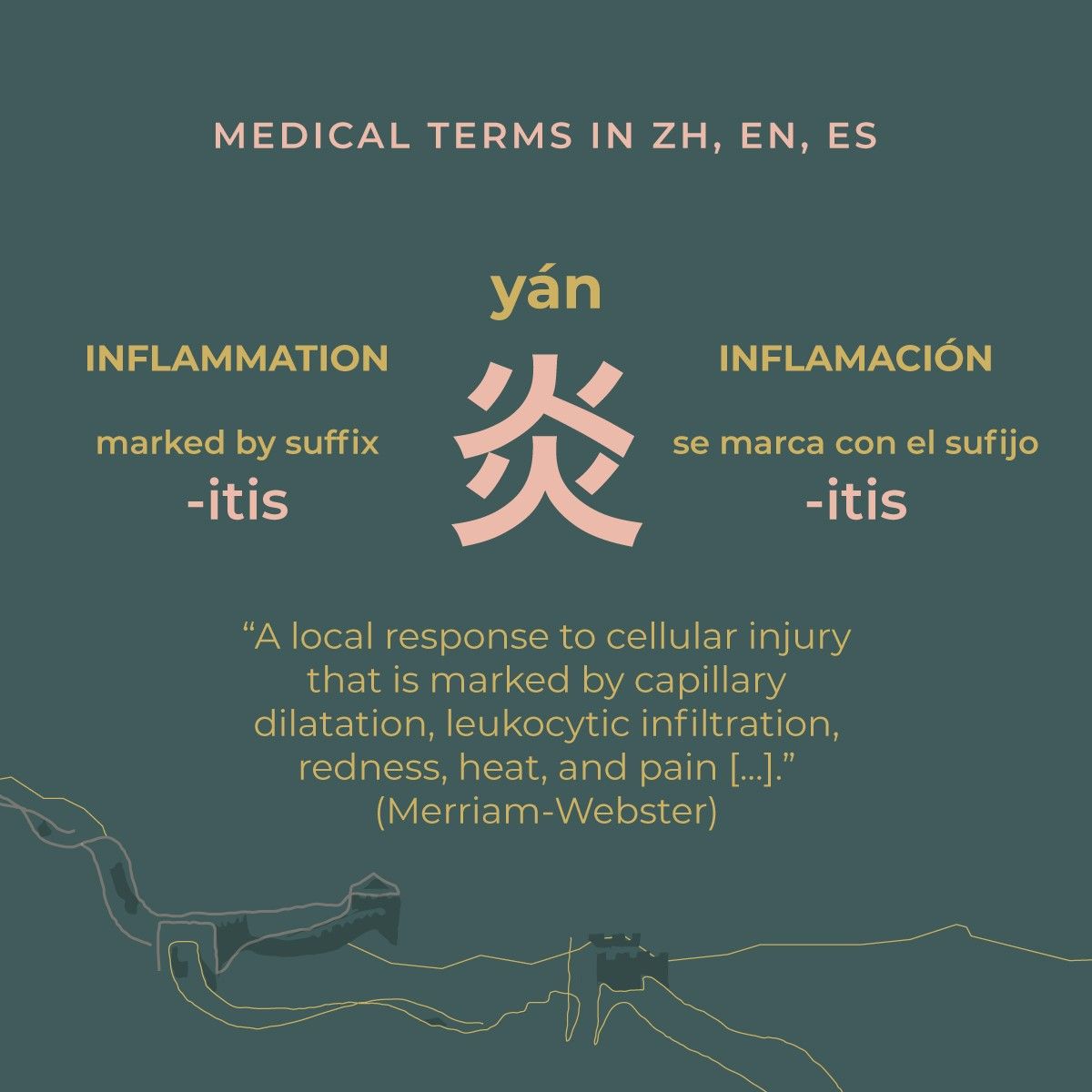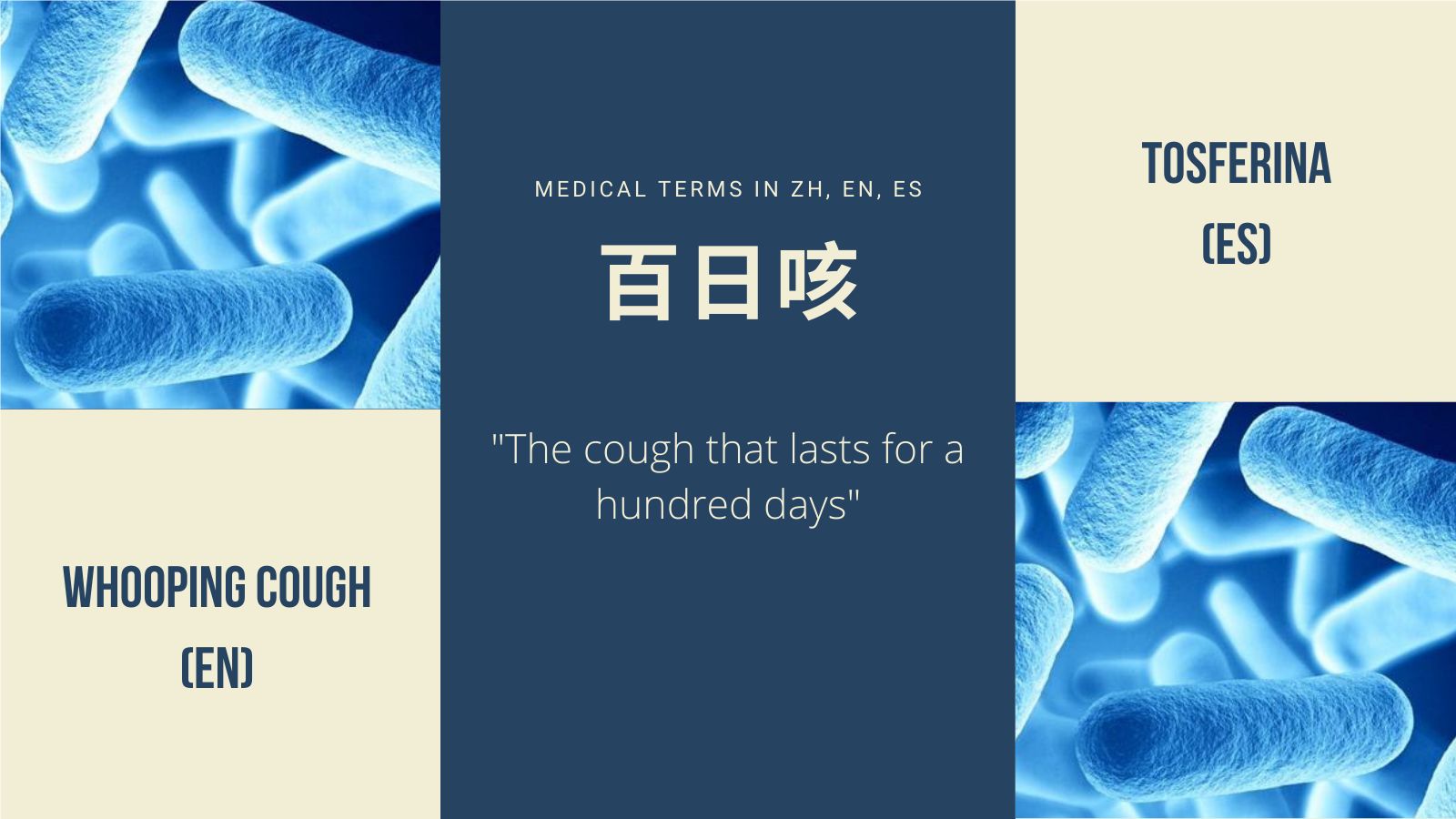
Hello, fellow translators! Today I wanted to talk about the Chinese character “炎” (Pinyin: yán). It’s hardly ever used alone, but when it follows another character, it provides the meaning of “inflammation”, especially in a medical context. For example, we have the word “结肠” (EN: colon). And what do you think the word “结肠” followed by “炎” means? You got it! It’s "colitis", the inflammation of the colon. In the other two languages I work with—English and Spanish—, the equivalent of this Chinese character would be the Latin suffix “-itis”, which provides exactly the same meaning. So next time you find a term that ends in “炎” in a medical context, you’ll immediately know what’s going on and you’ll be able to easily find a word in English or Spanish that means the same thing (although this doesn’t necessarily have to work in all situations). I really hope you found this tip useful! Btw, how do you express the concept of “inflammation” in your language? 🤔Do you also use a suffix? #medical #translation #chinese #english #spanish

Today I wanted to share with you a term in Chinese that I think makes A LOT of sense if you stop and think about what it means. When I started learning Chinese seven years ago, I found out memorizing new terms was quite easier if you understood their etymology. At the moment—and as I get more and more familiarized with medical terminology specifically—, I think it is paramount to create useful mental connections to improve your learning skills. For example, if you are translating an English > Mandarin text about whooping cough (or ‘pertussis’) and you look the term up, you will find the Mandarin equivalence ‘百日咳’ (bai3rìké). Great! You got the translation! But... how do you make sure you will remember the term when you read it in 6, 12 or 24 months? For me, the only way is to remember the meaning. ‘百日咳’ literally means ‘the 100-days cough’. This ‘whooping cough’ is an infection caused by a type of bacteria called 'Bordetella pertussis'. It causes a violent cough that could last for months. That is why it makes perfect sense to call it ‘百日咳’. As of Spanish, there are quite a lot of ways of referring to it, such as ‘tosferina’ (recommended), ‘tos ferina’, ‘tos convulsa’ or ‘tos convulsiva’. I hope you found this post helpful. Let me know what type of methods you use to memorize new terms in Chinese! #medical #translation #Chinese #English #Spanish







